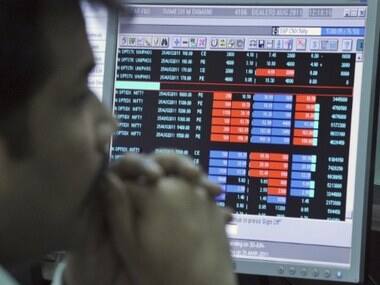New York: Recent market volatility has rekindled some investor fears from last year’s US “flash crash,” though regulators should be careful not to overreach as they respond with new rules, exchanges and brokerages say.
The sharp market moves that rattled stocks in August, including four straight days of more than 400-point swings in the Dow, continued into this month as Europe’s debt crisis threatened to drag the world into another recession.
[caption id=“attachment_84619” align=“alignleft” width=“380” caption=“The flash crash on May 6 rocked markets in a matter of minutes, revealed flaws in the market structure, and sparked a rash of new regulations. Reuters”]
 [/caption]
[/caption]
August’s soaring US equity trading volumes were surpassed only in May 2010 when the unprecedented flash crash on May 6 rocked markets in a matter of minutes, revealed flaws in the market structure, and sparked a rash of new regulations.
At industry conferences here on Wednesday, some executives tied today’s skittishness, especially among individual “retail” investors, to lingering concerns over stability and fairness in the marketplace.
“We certainly recognize that the issues of May 6 really will ripple through economic confidence on a sustained basis,” Nasdaq OMX Group Chief Executive Robert Greifeld said at a SMARTS conference hosted by his exchange.
“When we look at the economic malaise that we’re seeing in large parts of the world, we too have to say what part of that process are we contributing to, and what can we do to help.”
Impact Shorts
More ShortsUnlike in the very brief May crash, markets in the last several weeks did not malfunction and market makers did not bail out as indexes jerked mostly downward, executives argued. And there were fundamental economic reasons for the recent plunge, as volatile as it was, they said.
David Fisher, CEO of Charles Schwab Corp’s OptionsXpress unit, said that although his customers “are much more bearish than we’ve seen in the past,” they’re “getting used to the more volatile times.”
Fisher, speaking at a Futures Industry Association (FIA) options conference, added the customer comfort is in part because the SEC “very quickly went after the underlying causes of the flash crash, and put protections in place.”
Since the flash crash, the US Securities and Exchange Commission adopted new marketwide single-stock circuit breakers, required more information from large traders, banned unfettered and unmonitored access to markets, and it plans a real-time “consolidated audit trail” of all trading activity. Factbox on US market structure changes:
Yet some think the recent volatility could sharpen the SEC’s focus on market structure.
“Volatility like that in the market is not good, long term,” Christopher Nagy, managing director of order strategy at online brokerage TD Ameritrade Holding Corp, said on the sidelines of the FIA conference.
“The investor becomes squeamish, so there’s still much that needs to be done. The consolidated audit trail and other rules would help us to understand the micro activity behind the volatility,” he said.
Atop the list of industry concerns were the proposed US Volcker rule and the proposed European tax on financial transactions – each of which threatens to sap liquidity and ultimately harm retail and institutional investors, several executives warned on Wednesday.
The Volcker rule - named for former Federal Reserve Chairman Paul Volcker - would stop banks from using their own money to trade for profit. France and Germany, meanwhile, plan to push for the adoption of a transaction tax at a summit of the Group of 20 leading economies in November.
“There’s an environment right now in Washington and elsewhere, where there’s kind of a Wall Street versus Main Street mentality,” Steven Crutchfield, chief executive of NYSE Euronext’s NYSE Amex Options exchange, said at FIA.
Reuters
)